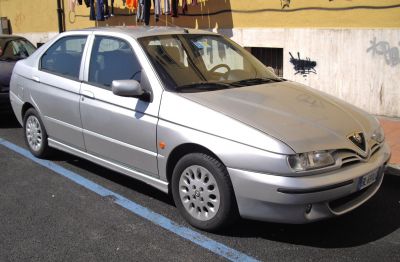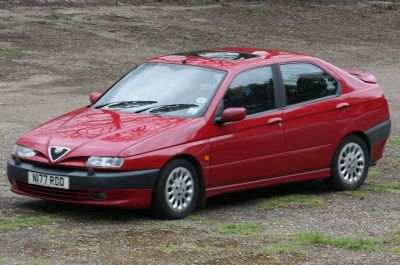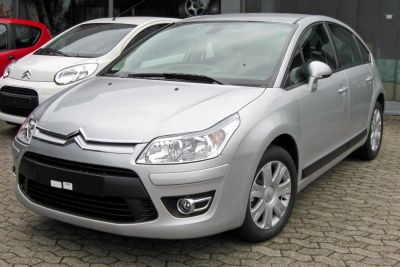 2002 Kia Rio I Hatchback (DC, facelift 2002) Dimensions, Size & Specs
2002 Kia Rio I Hatchback (DC, facelift 2002) Dimensions, Size & SpecsMeasurements of the 2002 Kia Rio I Hatchback, engineered for optimal performance and comfort
| Dimensions | |
|---|---|
| Length: | 4240 mm166.9 in13.9 ft |
| Width: | 1680 mm66.1 in5.5 ft |
| Height: | 1440 mm56.7 in4.7 ft |
| Trunk Capacity: | 449 liter15.9 cu ft |
| Trunk Capacity (Max): | 1277 liter45.1 cu ft |
| Weight Specifications | |
| Curb Weight: | 1000 kg2205 lbs |
| Maximal permitted Weight: | 1508 kg3325 lbs |
| Tire Specifications | |
| Tire Size: |
|
The Kia Rio I Hatchback (DC), specifically the facelift version produced from 2002 to 2005, is a compact and practical hatchback that offered efficient urban mobility combined with generous cargo space. Measuring 4240 mm (166.9 inches) in length, 1680 mm (66.1 inches) in width, and standing 1440 mm (56.7 inches) tall, this model fits well into the compact hatchback segment, making it easy to maneuver in tight city environments while still providing comfortable interior space. Weighing a curb weight of 1000 kg (2205 lbs) and a maximum gross weight of 1508 kg (3323 lbs), it strikes a balance between robust build quality and lightweight design for fuel efficiency. One of the standout features of the Kia Rio I Hatchback facelift is its impressive luggage capacity: 449 liters (15.9 cubic feet) with the rear seats upright, expandable up to 1277 liters (45.1 cubic feet) with the rear seats folded down, accommodating a wide range of cargo needs. The standard tire size on this model is 175/65 R14, which is typical for subcompact hatchbacks of its era, offering a stable and comfortable ride. This generation of the Kia Rio was well-known for combining affordability with functional design, making it a popular choice for drivers seeking a reliable, small car with a surprisingly spacious interior and ample cargo flexibility.
Discover the standout features that make the 2002 Kia Rio I Hatchback a leader in its class
Have a question? Please check our knowledgebase first.
The Kia Rio I Hatchback (DC, facelift 2002) has a length of 4240 mm (166.9 inches), a width of 1680 mm (66.1 inches), and a height of 1440 mm (56.7 inches). These compact dimensions make it a practical choice for urban driving and parking, providing a good balance between interior space and maneuverability.
The curb weight of the 2002-2005 Kia Rio I Hatchback is approximately 1000 kg (2205 lbs). This relatively light weight for a hatchback helps improve fuel efficiency and handling agility. A lighter vehicle generally consumes less fuel, accelerates quicker, and responds better in tight city conditions, which aligns well with the Rio’s role as an economical and practical daily driver.
Yes, the Kia Rio I Hatchback (DC, facelift 2002) fits comfortably in a standard single-car garage. Standard garage dimensions typically range around 2400-3000 mm (94-118 inches) in width and 4800-6100 mm (189-240 inches) in length. With its length of 4240 mm (166.9 inches) and width of 1680 mm (66.1 inches), the Rio leaves ample room for opening doors and maneuvering within most typical garages.
The luggage capacity of the Kia Rio I Hatchback 2002 facelift model is 449 liters (15.9 cubic feet) with the rear seats up. When the rear seats are folded down, the cargo space expands significantly to 1277 liters (45.1 cubic feet). This flexibility allows for easy transport of larger items while maintaining a compact footprint when seating passengers.
The Kia Rio I Hatchback comes equipped with tire size 175/65 R14. This tire specification balances a relatively narrow width (175 mm) for less rolling resistance, contributing to better fuel economy, with a moderate sidewall height (65% of the width) for ride comfort and shock absorption on rough urban roads. The 14-inch rim diameter helps keep overall vehicle weight and unsprung mass low, aiding in nimble handling.
The 2002 Kia Rio I Hatchback offers a practical interior space with a well-utilized cabin layout typical for compact hatchbacks of its era. Its luggage capacity of 449 liters with seats up is competitive, and 1277 liters when folded is particularly generous. While direct competitors in the subcompact segment generally offer similar space, the Rio distinguishes itself with a slightly larger cargo area, making it a versatile option for drivers needing balance between passenger and cargo space.
The facelift of the Kia Rio I Hatchback in 2002 largely retained the same exterior dimensions and weight as the pre-facelift model, maintaining a length of 4240 mm, width of 1680 mm, and height of 1440 mm. The curb weight stayed around 1000 kg (2205 lbs). The updates focused more on cosmetic enhancements and interior refinements rather than altering size or weight, ensuring the model's driving dynamics and fit in urban environments remained consistent.
Compared to its predecessor generation, the facelifted 2002 Kia Rio I Hatchback (DC) maintained similar overall dimensions with length around 4240 mm and width around 1680 mm. The facelift primarily improved styling and interior quality but did not significantly alter exterior size or luggage capacity. This approach preserved the model’s practicality while updating its appeal to buyers seeking a reliable, compact, and functional hatchback for city and suburban use.
When compared with contemporaries like the Honda Jazz (Fit), Ford Fiesta, and Toyota Yaris from the early 2000s, the Kia Rio I Hatchback (2002 facelift) is quite competitive. Its length of 4240 mm and width of 1680 mm are near the upper range for subcompact cars, giving it a slightly more spacious feel without compromising maneuverability. Its luggage capacity also stands out positively, making it an appealing choice among similarly sized hatchbacks.
The maximum allowable weight (gross vehicle weight) for the Kia Rio I Hatchback (DC facelift) is 1508 kg (3323 lbs). This figure includes the vehicle's curb weight of 1000 kg plus passengers, cargo, and any additional equipment. The substantial margin allows for a reasonable payload capacity, supporting both everyday commuting and short cargo transport without significantly impacting performance or safety. Proper load management within this limit is essential to ensure optimal handling and braking.
Discover similar sized cars.

| Production: | 1999-2000 |
|---|---|
| Model Year: | 1999 |
| Length: | 4235 mm166.7 in |
| Width: | 1712 mm67.4 in |
| Height: | 1425 mm56.1 in |

| Production: | 1997-1999 |
|---|---|
| Model Year: | 1997 |
| Length: | 4257 mm167.6 in |
| Width: | 1712 mm67.4 in |
| Height: | 1425 mm56.1 in |

| Production: | 1994-1996 |
|---|---|
| Model Year: | 1995 |
| Length: | 4260 mm167.7 in |
| Width: | 1712 mm67.4 in |
| Height: | 1425 mm56.1 in |

| Production: | 2023-present |
|---|---|
| Model Year: | 2024 |
| Length: | 4295 mm169.1 in |
| Width: | 1765 mm69.5 in |
| Height: | 1475-1495 mm58.1-58.9 in |

| Production: | 1999-2004 |
|---|---|
| Model Year: | 2000 |
| Length: | 4270 mm168.1 in |
| Width: | 1699 mm66.9 in |
| Height: | 1430 mm56.3 in |

| Production: | 2008-2010 |
|---|---|
| Model Year: | 2009 |
| Length: | 4275 mm168.3 in |
| Width: | 1964 mm77.3 in |
| Height: | 1496 mm58.9 in |

| Production: | 2001-2003 |
|---|---|
| Model Year: | 2002 |
| Length: | 4250-4280 mm167.3-168.5 in |
| Width: | 1700 mm66.9 in |
| Height: | 1430 mm56.3 in |
